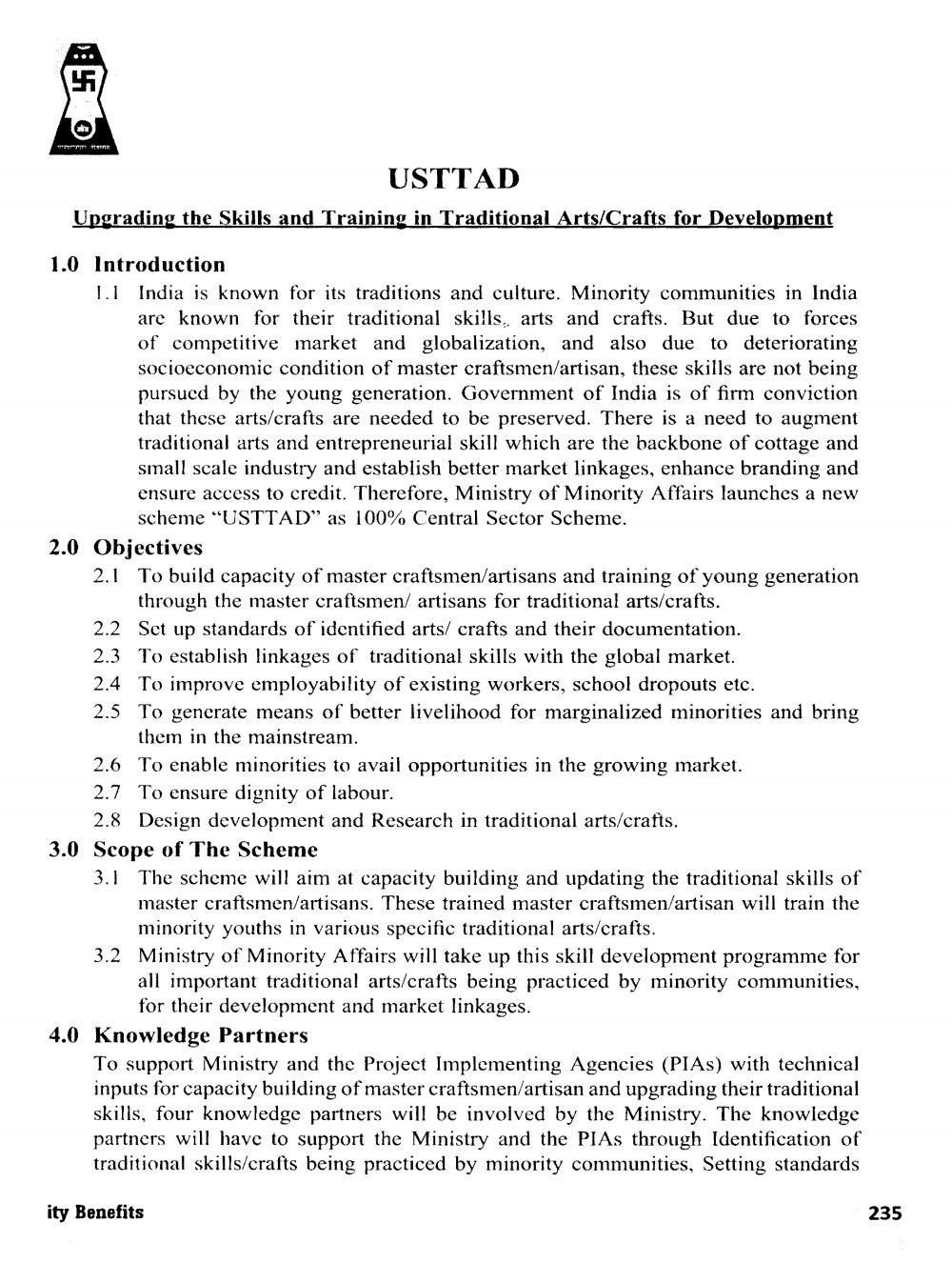________________
USTTAD
Upgrading the Skills and Training in Traditional Arts/Crafts for Development
1.0 Introduction
I.I India is known for its traditions and culture. Minority communities in India are known for their traditional skills, arts and crafts. But due to forces. of competitive market and globalization, and also due to deteriorating socioeconomic condition of master craftsmen/artisan, these skills are not being pursued by the young generation. Government of India is of firm conviction. that these arts/crafts are needed to be preserved. There is a need to augment traditional arts and entrepreneurial skill which are the backbone of cottage and small scale industry and establish better market linkages, enhance branding and ensure access to credit. Therefore, Ministry of Minority Affairs launches a new scheme "USTTAD" as 100% Central Sector Scheme.
2.0 Objectives
2.1 To build capacity of master craftsmen/artisans and training of young generation
through the master craftsmen/ artisans for traditional arts/crafts.
2.2 Set up standards of identified arts/ crafts and their documentation.
2.3 To establish linkages of traditional skills with the global market. 2.4 To improve employability of existing workers, school dropouts etc.
2.5 To generate means of better livelihood for marginalized minorities and bring them in the mainstream.
2.6 To enable minorities to avail opportunities in the growing market.
2.7 To ensure dignity of labour.
2.8 Design development and Research in traditional arts/crafts.
3.0 Scope of The Scheme
3.1 The scheme will aim at capacity building and updating the traditional skills of master craftsmen/artisans. These trained master craftsmen/artisan will train the minority youths in various specific traditional arts/crafts.
3.2 Ministry of Minority Affairs will take up this skill development programme for all important traditional arts/crafts being practiced by minority communities, for their development and market linkages.
4.0 Knowledge Partners
To support Ministry and the Project Implementing Agencies (PIAs) with technical inputs for capacity building of master craftsmen/artisan and upgrading their traditional skills, four knowledge partners will be involved by the Ministry. The knowledge partners will have to support the Ministry and the PIAS through Identification of traditional skills/crafts being practiced by minority communities, Setting standards
ity Benefits
235




